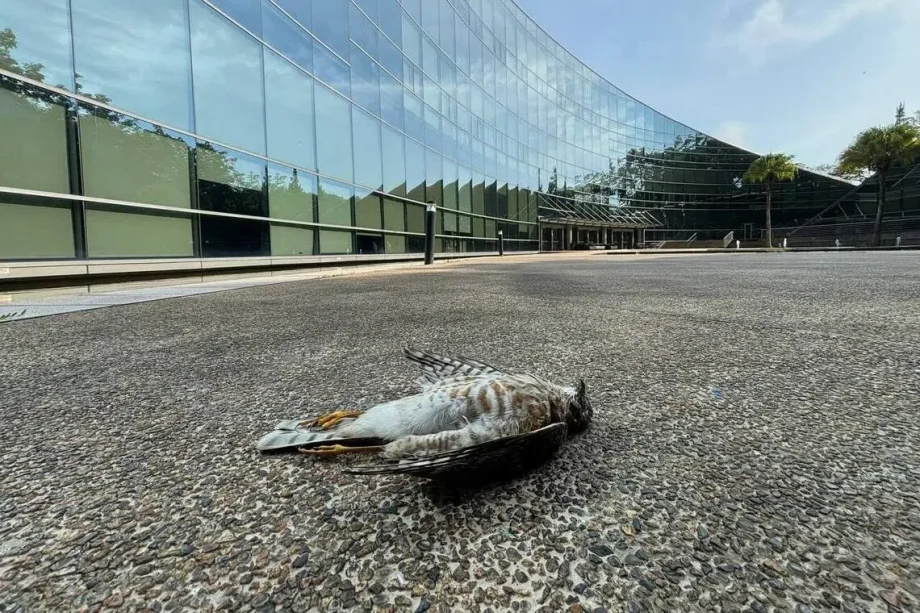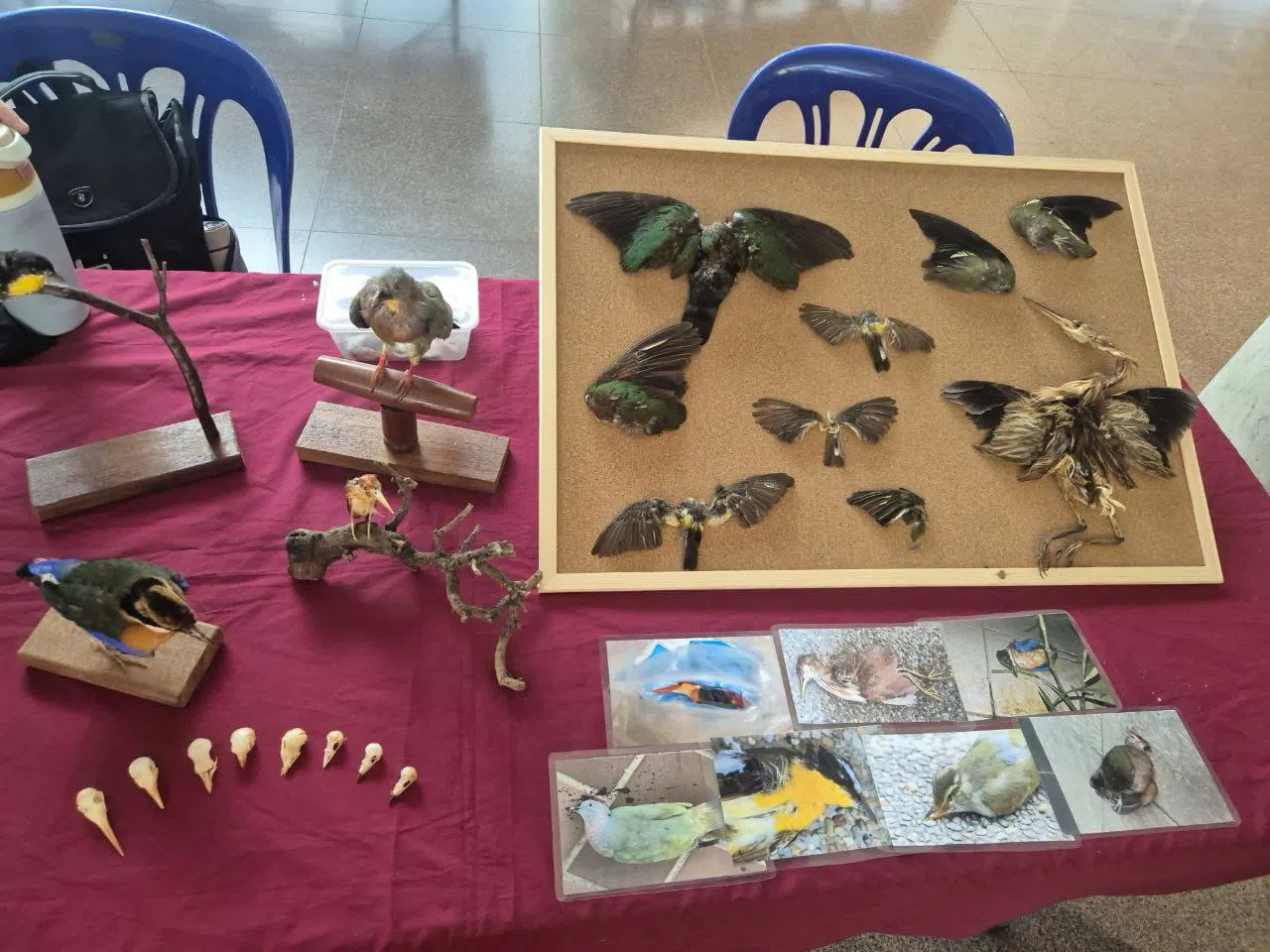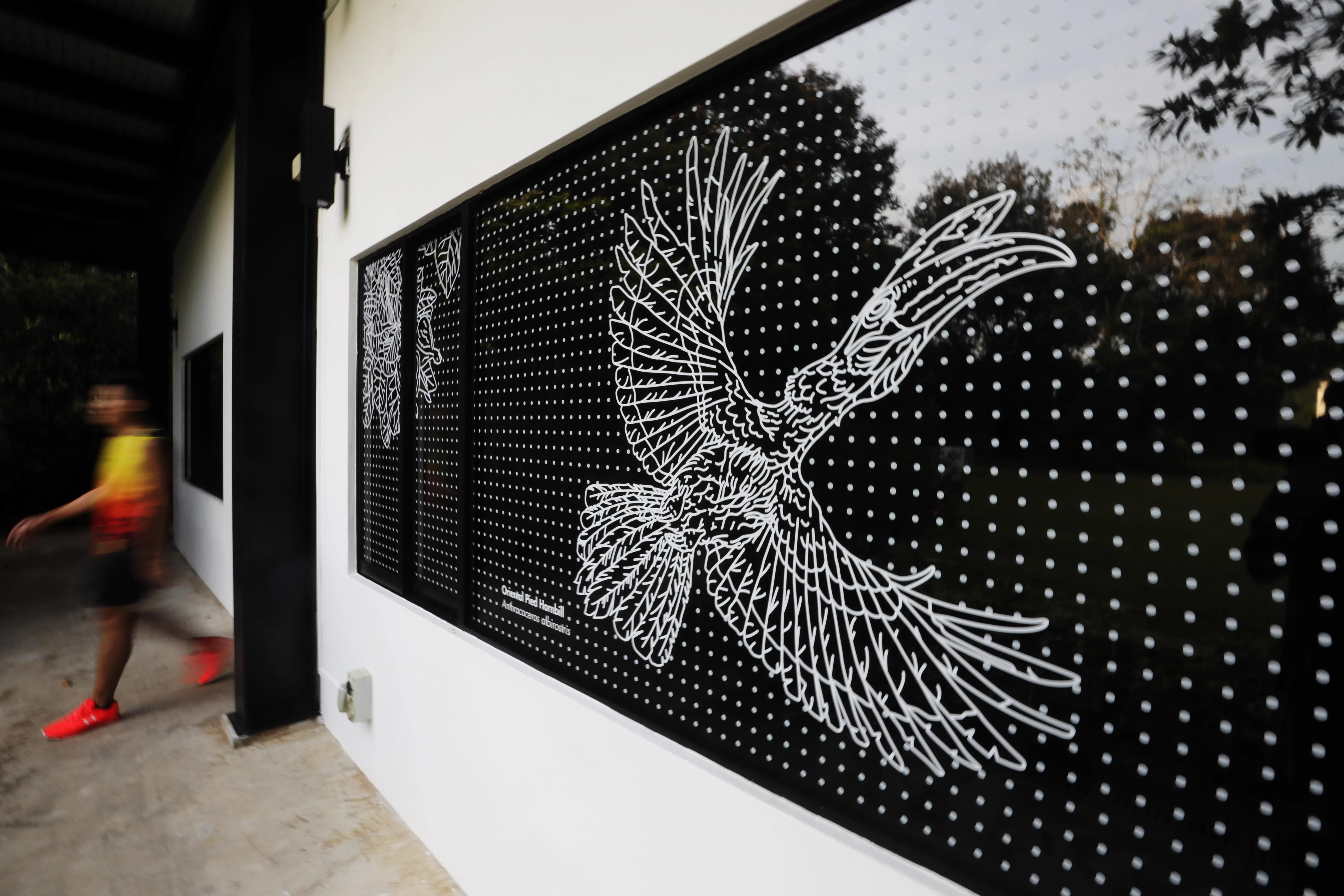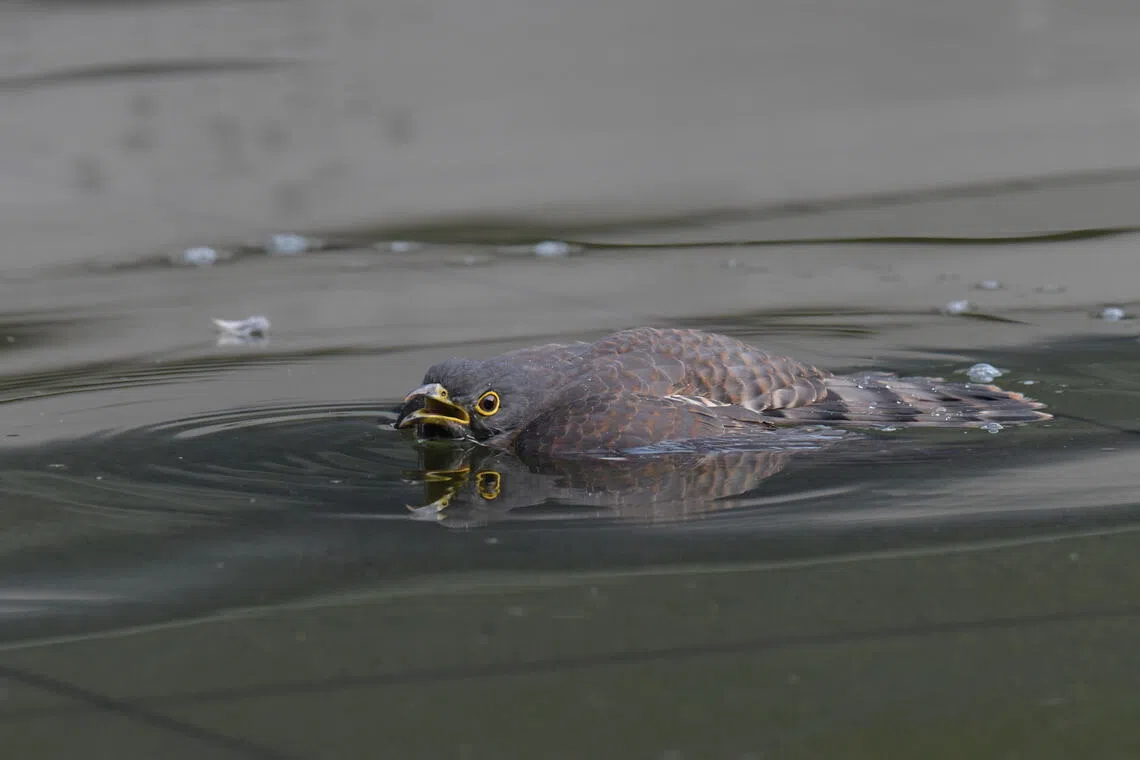SINGAPORE – For nearly two decades, an iconic building of the Nanyang Technological University (NTU) has wowed visitors with its green, sloped roofs and efficient design that has bagged the university an award for environmental consciousness.
Shortly after the School of Art, Design and Media (ADM) building’s completion, however, feathered visitors began to drop dead within its curved confines.
The birds had flown straight into the sleek, glass facade of the building, which conjured the illusion that its windows were part of the sky and surrounding landscape.
southward migratory season
, when birds arrive in Singapore as they make their journeys to avoid winter in the north, birds collide with the ADM building on a near daily basis, NUS’ Lee Kong Chian Natural History Museum’s assistant senior curator of birds Tan Yen Yi told The Straits Times.
A total of 122 collisions involving 22 bird species were recorded by Project Avigate – an NTU student-led initiative – during the past three migratory seasons.
“While the high number of reports from the building could also be an artefact of the students’ monitoring efforts, it is unequivocal evidence that this building is deadly for birds,” said Dr Tan, noting that the phenomenon affecting all cities worldwide is “invisible yet deadly”.
After witnessing one such collision just metres from his dormitory in September 2022, Mr Zachary Chong, then an NTU environmental earth systems science student, and his peers started Project Avigate to investigate the extent of these avian deaths and make the building safer for birds.
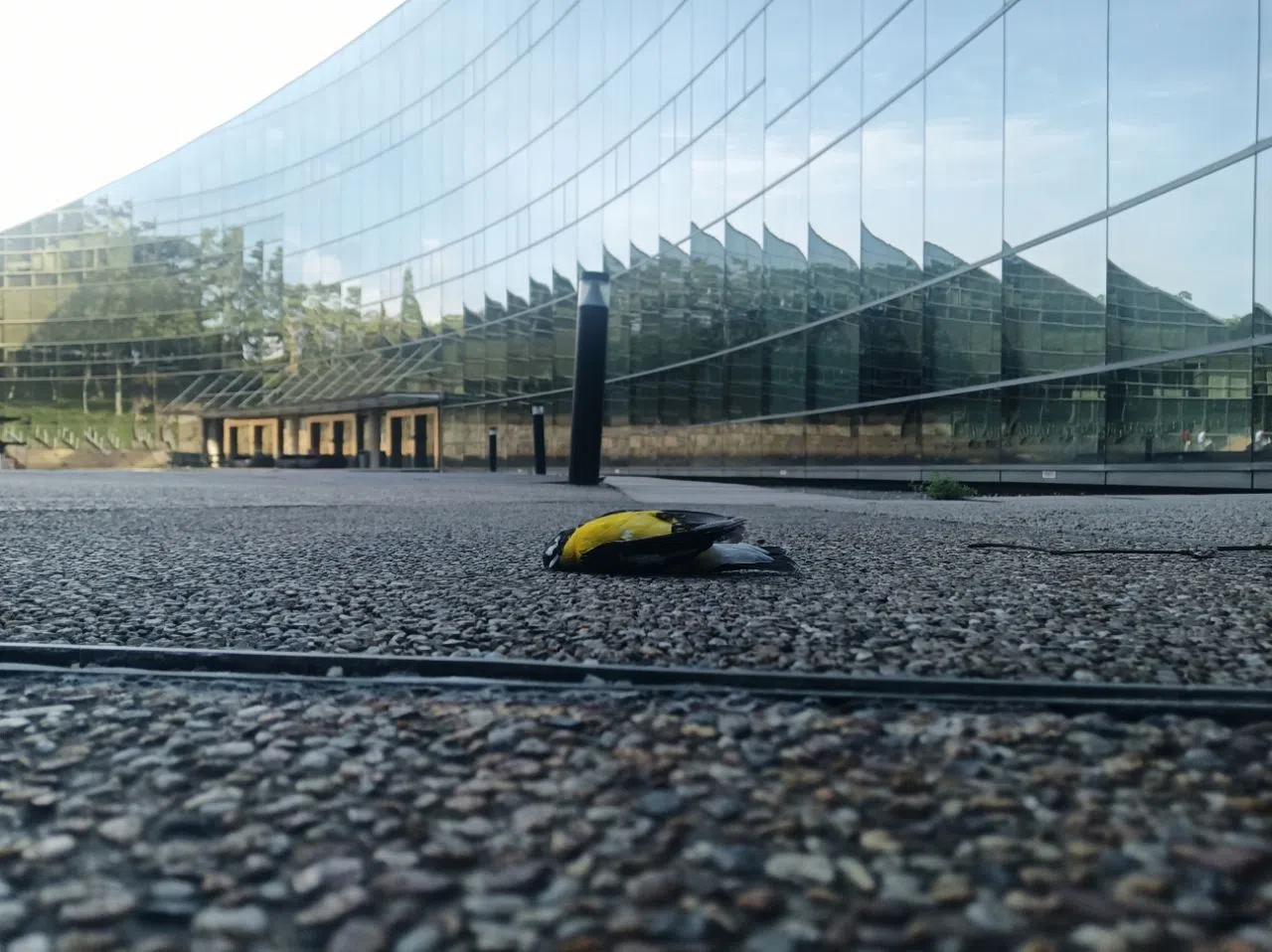
The collision Mr Zachary Chong witnessed at NTU’s School of Art, Design and Media building in 2022 that sparked Project Avigate.
PHOTO: PROJECT AVIGATE
Mr Chong, now a 25-year-old environmental consultant, said: “In the month after we started the project, we saw a multitude of birds die in front of our eyes, and in our hands.”
The project has since grown to more than 50 active volunteers, supported by scientists, architects and conservationists who share a vision of creating a safer and more sustainable campus.
On Oct 20, the project launched a campaign to raise $30,000 for the installation of decals that increase the visibility of the riskiest windows visible to birds. This accounts for a quarter of the glass areas.
A recent fund-raising week secured about 10 per cent of the target sum, said Project Avigate’s co-founder Tang Kean Seng, 23, a final-year student majoring in environmental earth systems science, public policy and global affairs.
The team is working on raising more funds so that the decals can be installed before the next migratory bird season starts in September 2026.

